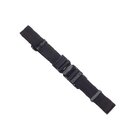1. If you do not even understand know the basics you should probably be doing a LOT more listening then talking, even a guy like you might learn something. This site might help you understand what neutral buoyant is.
Drownproofing
2. This is still a ridicules statement so you repeating it is just a waist of time. My non-experience as you call it comes from 44 years of diving, 10 of those years I worked as a commercial diver. I think I have more then enough grounds decide.
3. Another ridicules statement. This site will give you the exact numbers.
Scuba Cylinder Specification Chart from Huron Scuba, Ann Arbor Michigan
4. More over inflated numbers. The lungs hold 6 liters of air but only a small portion is exhaled with every breath.
Lung volumes - Wikipedia, the free encyclopedia
5. Getting them on the surface quickly in an extreme emergency was the whole point of dropping their weights. It is simple and fail proof rather then the way you would do it. The snorkel is also simple and fail proof. It has been my experience that as soon as you drop a panicking divers weights on the surface they stop panicking at which point they might need the snorkel.
6. Another ridicules statement. The fact that you do not even understand basics tells me that you have little or no experience worth relating to others.
Hopefully you will learn something from the sites I have provided. Once you have a grasp of the basics please feel free to ask any questions you may have, I am always willing to help out an amateur like yourself.
None of you links are on point, except one, and that actually gives the very number I stated. Are you even reading what you are writing, let alone the links you are posting?
1. You know what panicked divers don't do? Drownproofing (or basically any useful action that can help them). What diving class is that taught in again? And should I enroll them in that class once they start panicking, or after I rescue them? (and seriously, nothing that works in a pool has anything to do with what works in the ocean. You bad misunderstanding of what an openocean is actually like argues against your claimed experience.
Land based animals have powerful instinctual responses that are minimized by training, but they are not even slightly eliminated. They are surpressed by mindful action. You seem to be completely unaware of what panic is. What is the number one rule of diving again? What do people OOA nonetheless try to do because instinct is instinct? I know. DAN statistics know. You, clearly, don't.
2. Commercial diving? Great, you know more about that world than I ever will. Hopefully you do not have overweighted commerical divers in recreactional gear at the surface rejecting their gear, and panicking. If you do, then anything you have to say is on point. And commercial diving might be like that, because I know nothing about commerical diving. Nothing. Nada. Zero. Zilch.
If commercial diving is not like that, you are being silly to the detriment of safety. Pilots know about flying, not about aircraft maintenance. You know
nothing about working in recreational diving. Nothing. Nada. Zero. Zilch. I know. You don't.
3. Did you even fsking look at any of those links? Look up a Luxfer AL80 at the very site you linked and tell me the swing from empty to full. It's 6 freaking pounds,
by your own info. Before you argue, before you link, read your own link. I read the link. I know. You, bizarrely enough, do not even know
what you yourself linked to even says.
4. Teach open water and you will find that even average divers can adjust their breathing range to make up for the change in buoyancy of a tank during a dive. Add the choking response and thinks swing even more. You know what the difference between normal breathing volume and the residual volume of someone choking to clear an airway? I do. You don't.
5. You know how long ago we did away with the idea of ditching a weight belt at depth in recreational diving? Again, the heinie being talked out of is thine, kind sir. We no longer demo or practice positive buoyancy ascents, and we have not for 20 plus years. So no matter what
you think the weight is there for,
every training agency disagrees with you. Go ahead and tilt at those windmills if you like. They will laugh at how out of touch you are with recreational diving. I know. You don't.
You seem completely unaware of your level of ignorance. That's fine for most things on the internet. It's the very basis of the internet. The real world is where people with experience do things, and the internet is where those people get ignored.
Except when we are talking about safety in recreational diving, the protection of which is at the basis of the very existence of my livelihood.
So it freaking matters to me, personally, financially, when people get these things so profoundly wrong. You don't do this for a living, never have never will. I do.
(Posters Name redacted) can say what they want, and I will listen. You? Why do you even care? It's hard to see why you should even have any opinions about this at all. It simply has nothing to do with you, and never has. Why do you have any opinion at all, even the profoundly unjustified and mistaken ones you do?




